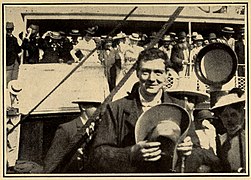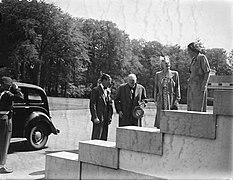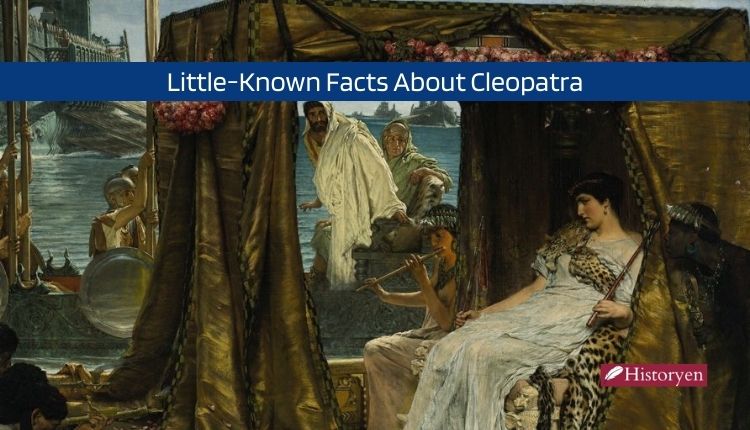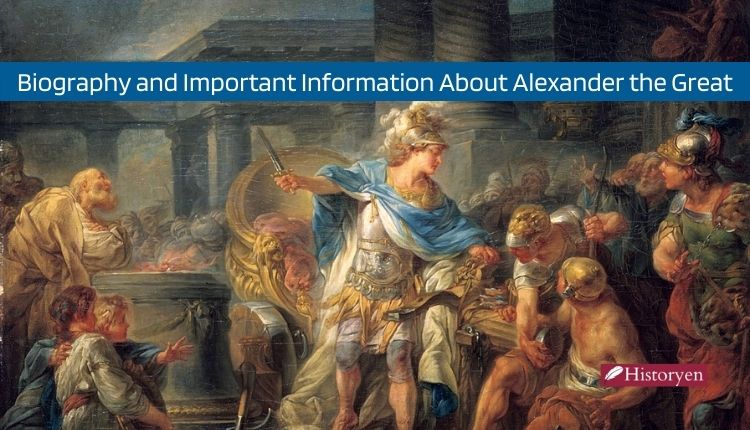Introduction
Winston Churchill, a name that resonates with courage, leadership, and resilience, was one of the most influential figures of the 20th century. As the Prime Minister of the United Kingdom during World War II, Churchill led his nation through its darkest hour, inspiring hope and determination in the face of adversity. This article delves into the remarkable life and accomplishments of Winston Churchill, exploring his early years, political career, wartime leadership, and enduring legacy.
Early Life and Education of Winston Churchill

Winston Leonard Spencer-Churchill was born on November 30, 1874, in Woodstock, Oxfordshire, England. He came from a prominent aristocratic family, with his father, Lord Randolph Churchill, being a prominent politician and his mother, Jennie Jerome, an American socialite. However, despite his privileged upbringing, Churchill’s childhood was not without challenges.
Churchill’s relationship with his parents was strained. His father was often absent from his life due to his political career, and his mother, though affectionate, had a tumultuous marriage with Lord Randolph. As a result, Churchill developed a strong sense of independence from an early age.
Churchill’s early education took place at home, where he received private tutoring. His love for learning was fostered by his governess and his father, who encouraged him to read extensively. Churchill displayed a particular interest in history and literature, devouring books on a wide range of topics.
At the age of eight, Churchill was sent to St. George’s School in Ascot, followed by Harrow School, where he continued to excel academically. However, he struggled with certain subjects, such as mathematics, and was more drawn to the humanities. Despite these challenges, Churchill’s passion for learning and intellectual pursuits remained unwavering.
After completing his education at Harrow, Churchill gained entry into the Royal Military College, Sandhurst, where he received formal military training. He graduated in 1894 and joined the British Army, serving in various military campaigns.
Throughout his early life and education, Winston Churchill’s intellectual curiosity, love for literature, and early exposure to politics laid the foundation for his future achievements. These formative years shaped his character, instilling in him a sense of determination, resilience, and a thirst for knowledge that would define his remarkable life and leadership.
Entry into Politics

Winston Churchill’s journey into politics began in the late 19th century, where he first became involved with the Conservative Party. His political ambitions were inspired by his father, Lord Randolph Churchill, who was a prominent Conservative politician and held high-ranking positions in the government.
In 1899, Churchill embarked on his political career by running as a Conservative candidate for the Oldham constituency in the general elections. Although he lost the election, his campaign laid the foundation for his future political endeavors.
Churchill’s political career gained momentum when he successfully contested the seat for Oldham in the 1900 general elections, securing his position as a Member of Parliament (MP). His early political accomplishments included advocating for social reforms, such as improved housing and working conditions for the working class.
Churchill’s political views and strong stance on British imperialism shaped his reputation as an influential figure within the Conservative Party. He staunchly defended the British Empire and its interests, particularly during his tenure as Secretary of State for the Colonies from 1921 to 1922.
However, Churchill’s political career was not without its setbacks. In 1904, he caused controversy within his own party by defecting to the Liberal Party, primarily due to his disagreement with the Conservative Party’s protectionist policies. This decision led to a temporary political isolation for Churchill, as he faced criticism and a loss of support from some Conservative colleagues.
During his time with the Liberal Party, Churchill held various government positions, including President of the Board of Trade and Home Secretary. He championed social reforms, supported free trade policies, and played an instrumental role in shaping the Liberal government’s domestic agenda.
Churchill’s political career experienced a resurgence when he re-joined the Conservative Party in 1924. He held several high-profile positions, including Chancellor of the Exchequer, where he implemented economic policies to stabilize the British economy.
Despite facing political setbacks and challenges, Churchill’s entry into politics marked the beginning of a long and illustrious career. His early experiences within different political parties and his advocacy for social and political causes laid the groundwork for his later role as a wartime leader and one of the most influential figures in modern history.
Winston Churchill’s Leadership During World War II

Winston Churchill’s leadership during World War II is regarded as one of the most pivotal and defining periods of his career. In 1940, when Britain stood alone against the Nazi regime after the fall of France, Churchill assumed the role of Prime Minister, leading the country through its darkest hour.
Churchill’s unwavering resolve and indomitable spirit became emblematic of the British people’s determination to resist Nazi aggression. His speeches, with their powerful and inspiring words, galvanized the nation and rallied the British population to stand united in the face of adversity.
One of Churchill’s most famous speeches during this time was his address to the House of Commons on June 4, 1940, known as the “We Shall Fight on the Beaches” speech. In this speech, Churchill emphasized the need for unwavering resolve and highlighted the importance of maintaining the fight against the Nazi regime. His powerful rhetoric and defiant spirit resonated with the British people, instilling hope and determination.
As Prime Minister, Churchill worked tirelessly to mobilize the country’s resources, bolster its defenses, and forge alliances with other nations fighting against Nazi Germany, such as the United States and the Soviet Union. He actively participated in strategic military decisions, demonstrating a keen understanding of military affairs and providing strong leadership during a time of crisis.
Churchill’s leadership extended beyond the military realm. He played a crucial role in maintaining the morale of the British people, visiting bomb-damaged areas, and providing support and encouragement to civilians. His presence and resilience in the face of danger served as a source of inspiration and helped foster a sense of national unity.
Throughout the war, Churchill remained steadfast in his belief that Britain would emerge victorious. He refused to entertain the idea of surrender or compromise with the enemy, and his resolute leadership became a symbol of defiance and determination.
Churchill’s leadership during World War II not only unified the British people but also earned him international recognition and respect. His strong alliance with the United States, particularly with President Franklin D. Roosevelt, helped strengthen the Allied forces and paved the way for eventual victory.
In conclusion, Winston Churchill’s leadership during World War II was characterized by his unyielding resolve, powerful oratory, and ability to inspire and unite a nation in the face of overwhelming odds. His unwavering commitment to the fight against Nazi tyranny played a pivotal role in shaping the course of the war and ensuring the eventual triumph of the Allied forces.
Winston Churchill as an Orator and Writer

Winston Churchill was not only a remarkable political leader but also a gifted orator and prolific writer. His eloquence, powerful speeches, and literary contributions played a significant role in shaping his legacy.
Churchill’s oratory skills were renowned and often cited as one of his greatest strengths. He had a commanding presence and a distinctive voice that captivated audiences. Churchill’s speeches were characterized by their passionate delivery, memorable phrases, and unwavering conviction. He had a remarkable ability to connect with his listeners, instilling a sense of hope, determination, and unity.
One of Churchill’s most famous speeches was his address to the House of Commons on June 18, 1940, commonly known as the “This was their finest hour” speech. In this speech, he rallied the British people during the early days of World War II, emphasizing their resilience, courage, and determination in the face of the Nazi threat. Churchill’s powerful oratory skills were instrumental in boosting the morale of the nation during times of crisis.
In addition to his oratory prowess, Churchill was also a prolific writer. His literary contributions were diverse, ranging from historical works to memoirs and essays. His historical writings showcased his profound understanding of political and military events, as well as his insightful analysis of the past.
One of Churchill’s most notable literary works is his six-volume memoir, “The Second World War,” which provides a comprehensive account of the war from his perspective as a key leader. This memoir not only serves as a historical record but also demonstrates Churchill’s literary talent and his ability to engage readers with his vivid storytelling.
Churchill’s writings were characterized by his command of the English language, rich descriptions, and meticulous attention to detail. He had a knack for crafting compelling narratives that brought historical events to life. His prose was eloquent, and he had a unique ability to convey complex ideas in a clear and accessible manner.
Beyond his historical works, Churchill also wrote extensively on a wide range of topics, including politics, social issues, and his own personal experiences. His writings showcased his wit, intelligence, and deep knowledge of various subjects.
Overall, Winston Churchill’s oratory skills and literary contributions cemented his status as a master communicator. His speeches continue to inspire and resonate with audiences, while his writings provide valuable insights into his leadership, historical events, and the challenges faced by his generation. Churchill’s oratory and literary legacy serve as a testament to his exceptional talent and his enduring impact on the world of politics and literature.
Post-War Contributions and Legacy

Following the end of World War II, Churchill’s influence extended beyond his time as Prime Minister. He played a significant role in shaping post-war Europe, advocating for the creation of international organizations like the United Nations. Churchill’s legacy also encompasses his efforts to foster better relations between Britain and the United States, strengthening the special bond between the two nations.
The Impact of Winston Churchill as an Orator and WriterLeadership Today

Even decades after his passing, Winston Churchill’s impact continues to reverberate across the globe. His leadership during World War II remains a symbol of courage and determination. Churchill’s words still inspire individuals to confront challenges head-on, reminding us of the power of resilience and steadfastness in the face of adversity.
Conclusion
Winston Churchill’s extraordinary life and leadership have left an indelible mark on history. From his early struggles to his pivotal role in World War II, Churchill exemplified the qualities of a visionary leader. His oratory prowess, literary contributions, and lasting legacy continue to inspire generations to strive for greatness and face challenges with unwavering resolve.



